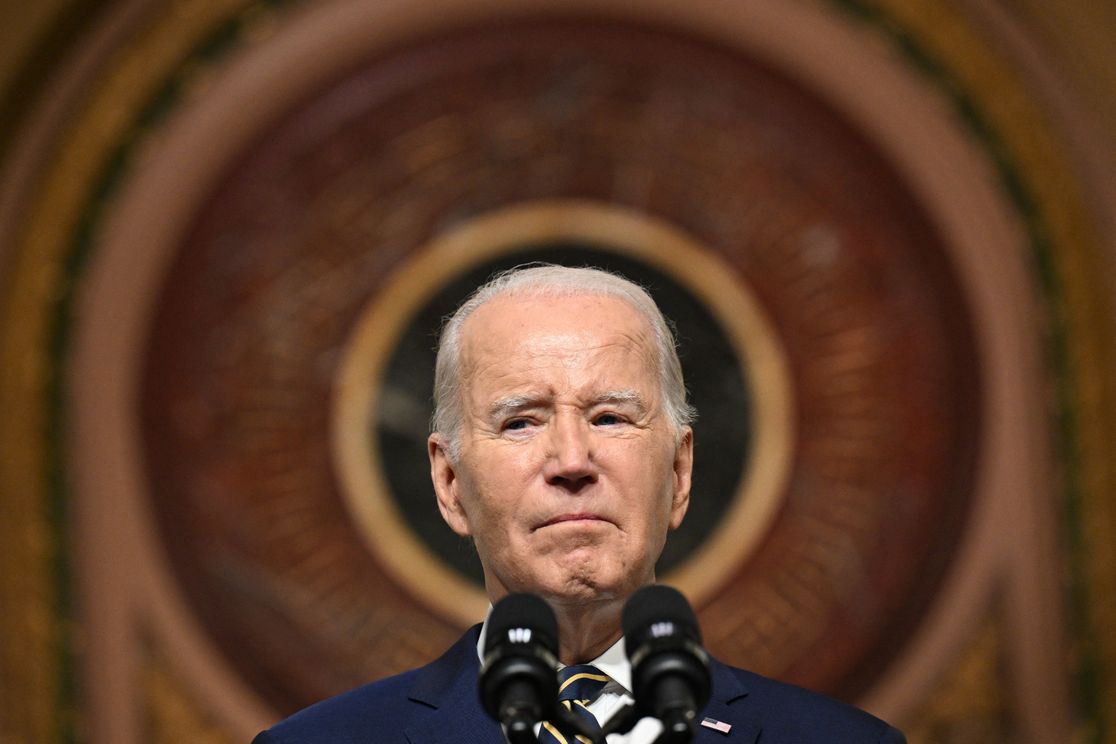Plus: Big science drama | Friday, August 04, 2023
| | | | | | | Presented By The Coalition to Protect America's Regional Airports | | | | Axios PM | | By Mike Allen · Aug 04, 2023 | | 🏖️ Happy Friday! Today's PM — edited by Noah Bressner — is 638 words, a 2-min. read. Thanks to Sheryl Miller for the copy edit. | | | | | | 1 big thing — Scoop: Biden wants workers back | | President Biden speaks in the Eisenhower Executive Office Building, next to the White House, last month. Photo: Mandel Ngan/AFP via Getty Images President Biden is calling for his Cabinet to "aggressively execute" plans for federal employees to return to their offices this fall after years of working remotely, Axios' Alex Thompson has learned. - "We are returning to in-person work because it is critical to the well-being of our teams and will enable us to deliver better results for the American people," White House Chief of Staff Jeff Zients emailed every Cabinet official today.
Why it matters: It's Biden's most overt push yet to get federal employees to return to their offices — a dynamic many businesses have struggled with as Americans continue to embrace remote work. - "17 of the 24 federal agencies used on average an estimated 25 percent or less of the capacity of their headquarters buildings," a Government Accountability Office report published last month found.
🔎 Between the lines: Zients has made returning to the office a priority for both the White House and the broader executive branch since becoming chief of staff in February. - Several current and former Biden White House officials told Axios that it was difficult to foster a healthy culture when the pandemic was still raging.
- The White House declined to comment.
Zoom out: The political pressure on the White House to curb remote work has included demands from Republicans in Congress who have blamed telework for delays and backlogs in agencies' work. - Democrats and advocacy groups have blamed a lack of staffing on funding and cite telework as a key tool in recruiting staff.
Keep reading. |     | | | | | | 2. 🦠 COVID "Russian roulette" |  | | | Illustration: Maura Losch/Axios | | | | A recent uptick in COVID cases and hospitalizations hints at how the virus will keep raising a predictable seasonal threat. - Why it matters: Experts warn the U.S. is lacking critical tools to help manage future waves, Axios' Sabrina Moreno reports.
🖼️ The big picture: Critical tools and resources have gone away with the end of the public health emergency. - Tracking the virus' spread has become more challenging, and Americans now have less access to free tests and treatments.
The bottom line: "It's kind of Russian roulette" for the most vulnerable, said Jill Foster, an infectious disease expert at the University of Minnesota. |     | | | | | | A message from The Coalition to Protect America's Regional Airports | | DCA is at capacity | | |  | | | | DCA has America's busiest runway and adding more flights will increase safety issues, delays and cancellations. What you need to know: Congress has a choice. They can vote to protect passenger safety and convenience — or vote to make travel worse. Learn more. | | | | | | 3. Catch me up |  Data: Bureau of Labor Statistics. Chart: Axios Visuals - 📊 The labor market added 187,000 jobs in July and the unemployment rate fell to 3.5%. Employers have had to throttle back on new positions because there aren't enough workers to fill them. Keep reading.
- 🏈 The Big Ten cleared the way for Oregon and Washington to join the conference — dealing a crushing blow to the beleaguered Pac-12, AP reports.
- 🏛️ Justice Elena Kagan voiced her support for a new ethics code for the Supreme Court, taking a sharply different stance than Justice Samuel Alito. Keep reading.
|     | | | | | | 4. ⚡ Room-temp physics drama |  | | | Illustration: Annelise Capossela/Axios | | | | High-stakes drama is emerging in the world of physics: Scientists are rushing to replicate the work of researchers who claim to have solved a problem considered a holy grail in the field. - Late last month, a team of researchers claimed they'd developed a material that could act as a superconductor at room temperature and normal atmospheric pressure, Axios Science author Alison Snyder writes.
Why it matters: That sounds niche, but superconductors that can operate at room temperature could unlock massive technological advancement. - Think quantum computing, a more efficient energy grid, producing endless clean energy from fusion and more.
🧠 How it works: A superconductor is a material that can conduct electricity without losing energy in the form of heat. - Today's superconductors — for example, the magnets used in MRI machines — require ultra-cold temperatures to operate.
Reality check: Experts in the field are voicing skepticism. Two studies published this week couldn't replicate the reported technique, and another re-created it under less impressive circumstances. |     | | | | | | A message from The Coalition to Protect America's Regional Airports | | Protect regional access to our nation's capital | | |  | | | | Regional airports are critical for connecting communities and supporting local economies. Okay, but: One group is pushing for changes to DCA's slot and perimeter rules that threaten these communities' access to our nation's capital. Take action. | | |  | | Are you a fan of this email format? Your essential communications — to staff, clients and other stakeholders — can have the same style. Axios HQ, a powerful platform, will help you do it. | | | | | | Axios thanks our partners for supporting our newsletters.
Sponsorship has no influence on editorial content. Axios, 3100 Clarendon Blvd, Arlington VA 22201 | | | You received this email because you signed up for newsletters from Axios.
To stop receiving this newsletter, unsubscribe or manage your email preferences. | | | Was this email forwarded to you?
Sign up now to get Axios in your inbox. | | | | Follow Axios on social media:    | | | | | |








No comments:
Post a Comment